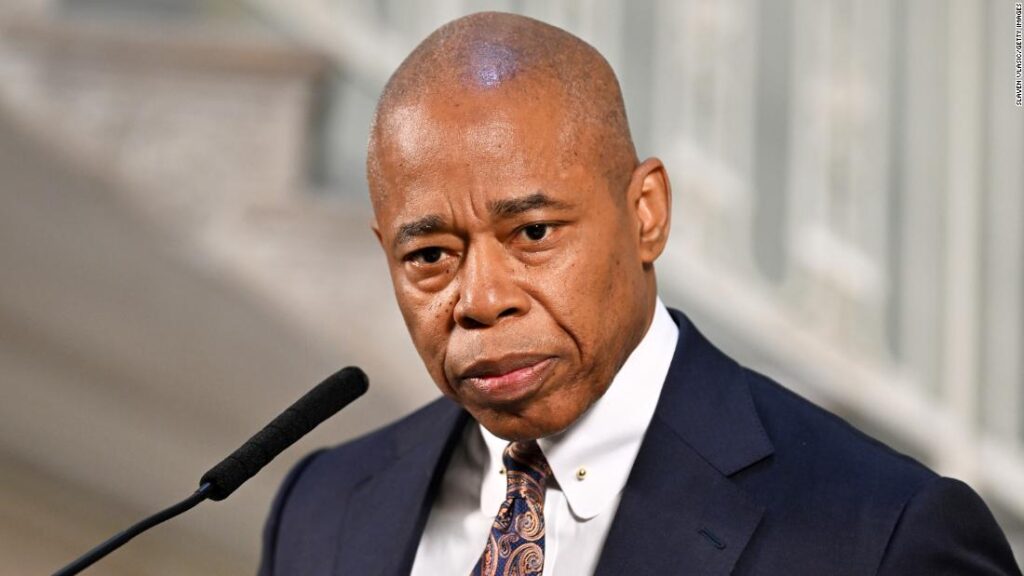New York : New York City Mayor Eric Adams today announced progress on several jails-focused initiatives to provide greater care and enhanced programming for people in custody and released two feasibility studies on potential sustainability uses of Rikers Island. The city will invest $14 million to enhance programing initiatives for people in custody. Mayor Adams also directed NYC Health + Hospitals to move forward with construction of more than 350 outposted therapeutic housing beds that will increase access to specialty health care services for people in custody while moving those who are most clinically vulnerable off of Rikers.
Additionally, the administration announced the completion of the Feasibility Study for a New Wastewater Resource Recovery Facility on Rikers Island and the Renewable Rikers Feasibility Study Report, required under local law, that assess the potential building of renewable energy infrastructure on Rikers Island.
“Ensuring dignity, safety, and care of all justice-involved New Yorkers is a top priority for our administration and today’s announcement will provide greater access to specialized medical care for people in our custody, as well as delivering much-needed resources to support those who are preparing to return to their communities,” said Mayor Adams. “While our commitment to the success of our jails is unwavering, we are also planning for the future of Rikers by releasing these studies that asses the feasibility of bringing renewable energy infrastructure to the Island.”
“As we implement plans to house incarcerated New Yorkers with greater dignity and care, we must also envision a future for Rikers Island — one that supports New York’s significant energy and sustainability needs,” said Deputy Mayor for Operations Meera Joshi. “This is an opportunity not only to reimagine a better criminal justice landscape in this city, but a better environmental justice landscape too.”
“The investments announced today show the administration’s commitment to support the whole-person through difficult life transitions and thereby strengthening our communities overall,” said Deputy Mayor for Health and Human Services Anne Williams-Isom. “As New Yorkers engage with and transition from the justice system, they will receive support ranging from workforce development, transportation, community connections, educational opportunities, housing assistance, and health care, among others. Additionally, we will open hundreds of beds in outposted housing units that will serve those with specialized clinical needs. Thank you to all involved in this multi-agency effort to walk with people as they build productive, fulfilling lives.”
“Programs providing education, health and wellness, and transitional services are essential for improving the safety of our jails and creating better outcomes for those in our care and custody,” said New York City Department of Correction (DOC) Commissioner Lynelle Maginley-Liddie. “Investments in programming can lead to reductions in violence, lower rates of recidivism, and pathways to higher education and employment.”
Enhanced Programming on Rikers Island
Mayor Adams today announced $14 million in funding for DOC to increase programming initiatives for people in custody in New York City jails. Building on the department’s commitment to addressing the needs of individuals in its care, DOC identified five key areas to bolster support for people in custody. Initiatives to receive funding include:
- Trauma-Informed Programming: DOC will ensure improved access to trauma-informed care for people in custody through the creation of a social work, mental health, and creative arts therapy team that supports learning opportunities for graduate-level students. Trauma-informed programming will be available to sentenced individuals and detainees with specialized needs.
- Transition Planning Programming: DOC will invest in transition planners who will be assigned to each general population housing area and at intake at a higher frequency to ensure consistent assistance to navigate reentry challenges and establish a foundation for long-term stability. Transition planners stationed at the facility’s intake will serve as a crucial point of contact prior to discharge, mirroring a hospital model for a seamless transition to the community. Transition planners will facilitate reentry workshops, assist in resume development, and support individuals transitioning to state prisons.
- Substance Misuse Programming: Funding for substance misuse programming will ensure the provision of substance use education and support groups, as well as support transition planning specific to substance misuse. Substance misuse programming will be available to sentenced individuals and detainees with substance misuse needs. In 2023, 4,266 individuals self-reported drug use.
- Supplemental Educational Programming: Funding for supplemental educational programming will ensure the provision of basic literacy, numeracy, general education diploma preparation, and English Language Learner services and college readiness, as well as tutoring for people in custody.
- Transportation Programming: DOC will offer transportation to community-based services to people upon discharge, making it easier for people to access emergency housing, employment, substance misuse services, and family reunification. Discharge transportation will enable DOC to provide critical support during the at-risk period immediately following incarceration, decreasing the likelihood of recidivism.



